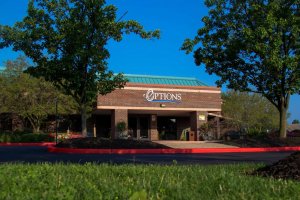Alcohol And Antidepressants
Mixing Alcohol And Antidepressants
Alcohol is classified as a Depressant because it depresses nervous systems in our bodies, like heart rate, blood pressure, and respiration. Combining alcohol with Antidepressants can be dangerous and even potentially fatal. It is strongly discouraged, as alcohol and some Antidepressants lead to drowsiness and decreased alertness. Results can create challenges on the job or at home, health issues, and other safety concerns.
Looking for a place to start?
Join the thousands of people that have called a treatment provider for rehab information.
Free and confidential
Available 24/7
Access to professional treatment
The combination of alcohol and Antidepressants can be very complicated if someone is drinking, binge drinking, heavy drinking, or has an alcohol use disorder before taking Antidepressants. Furthermore, if someone decides to stop taking drugs for depression and starts drinking alcohol for symptom management instead, they can worsen their symptoms of depression.
The Effects Of Combining Alcohol With Antidepressants
Antidepressant classifications such as MAOIs combined with alcohol can result in higher than average blood pressure or a fatal or non-fatal stroke. Other Antidepressants combined with alcohol can bring about feelings of drowsiness, dizziness, impaired driving or performing with heavy machinery, and difficulties focusing and concentrating. Unfortunately, people have died combining Antidepressants with alcohol; the mixture can lead to suicidal thoughts, plans, or attempts.
If someone who is combining alcohol with Antidepressants stops taking their Antidepressants and begins relying on alcohol alone to self medicate, they may increase their alcohol consumption and develop an alcohol use disorder. Combine this with them having a history of depression, and there could be an increased risk of:
- Alcohol abuse
- Liver cirrhosis
- End stage alcoholism
- Miscarriage
- Liver damage
- Anxiety
- Feelings of hopelessness, worthlessness, and emptiness
- Suicidal thoughts
Alcohol may increase the side effects of some Antidepressant medications and vice versa. Liver damage from liver toxicity can occur as alcohol and some medications are both metabolized and processed by the liver, causing it to work overtime. Drinking moderately or heavily can cause negative effects on other organs, like the brain, resulting in impairments with cognition and brain function.
Pregnancy, Alcohol, And Antidepressants
Drinking alcohol while pregnant is already risky; however, taking Antidepressants does not have any known risks toward the fetus, with the exception of Paxil. Most of the Antidepressants do not get transferred through breast milk. Nevertheless, when alcohol gets thrown into the equation, risks like Fetal Alcohol Spectrum Disorder (FASD), Fetal Alcohol Syndrome (FAS), fetal heart defect, poor brain function, abnormalities, and alcohol dependence become possibilities.
An expecting mother is putting both herself and the fetus at risk for the dangers associated with drinking. For example, a mother who drinks can develop a tolerance to alcohol. Secondly, she may accidentally combine alcohol with other medications prescribed for pregnancy that can have an impact on the fetus. In the case of FASD and FAS, a smaller-than-average-sized head, learning disabilities, and other developmental challenges can occur. Fortunately, there is help available specific for neonatal care. Medical treatment professionals can detect substance abuse and risks associated with problem drinking or medications that can impact the mother and fetus.
Types Of Antidepressants
Antidepressants are drugs that treat symptoms of depression, and are 1 of the 3 most commonly used drug classes in the US. A Centers for Disease Control and Prevention (CDC) report cites an increase in Antidepressant use from 1999 to 2014. During 2011 to 2014, there was a reported 12.7% of people 12 years old and older using Antidepressants. Women were twice as likely to use Antidepressants compared to male counterparts. Antidepressants fall into 2 main categories: Selective Serotonin Reuptake Inhibitors (SSRIs) or Monoamine Oxidase Inhibitors (MAOIs). However, there are other types of Antidepressants available such as:
- Dopamine Reuptake Blocker
- Serotonin and Norepinephrine Reuptake Inhibitors (SNRIs)
- Tricyclic Antidepressants (TCAs)
- Tetracyclic Antidepressants
- 5-HT1A receptor antagonist
- 5-HT2 receptor antagonist
- 5-HT3 receptor antagonist
- Noradrenergic antagonist
Selective Serotonin Reuptake Inhibitors (SSRIs) also treat obsessive compulsive disorders (OCD), anxiety, and bulimia. MAOIs also treat Parkinson’s disease.

Break free from addiction.
You have options. Talk about them with a treatment provider today.
How Antidepressants Work
Some depression is related to having low levels of serotonin in the brain. Serotonin, also known as “the feel-good chemical,” is a neurotransmitter in the brain responsible for a sense of well-being. Selective Serotonin Reuptake Inhibitors (SSRI) like Paxil, Prozac, Zoloft, and Lexapro are a class of Antidepressants that work by increasing levels of serotonin in the brain. Classifications of drugs like SSRIs and MAOIs are highly effective in reducing symptoms associated with depressive episodes with mild to moderate side effects.
These medications balance neurotransmitters in the brain, leading to better moods, improved quality of sleep, ability to focus, and increased appetite, energy, and motivation. Some Antidepressants, like Cymbalta, can counter nerve pain that comes with fibromyalgia; other Antidepressants can relieve migraines. In some cases, some of these drugs can reduce physical pain. Pain relief can be an extremely helpful aid, as depression can worsen physical pain; pain can worsen depression. The intention of Antidepressants is to help someone improve their symptoms of depression, eliminate bodily pain, and help them live a happier life.
Common Questions About Rehab
Explore Treatment Options
There are many risks associated with combining alcohol and Antidepressants, however, there is help available if needed. Alcohol changes the brain’s’ chemistry, and quitting “cold turkey” produces uncomfortable side effects and can even be potentially fatal if you are physically dependent on alcohol. Contact a treatment provider to explore available treatment options.
Published:
Author
Krystina Murray

-
Krystina Murray has received a B.A. in English at Georgia State University, has over 5 years of professional writing and editing experience, and over 15 years of overall writing experience. She enjoys traveling, fitness, crafting, and spreading awareness of addiction recovery to help people transform their lives.
- More from Krystina Murray
Reviewed by Certified Addiction Professional:
Dayna Smith-Slade

Dayna Smith-Slade is a nationally certified Master Addictions Counselor (MAC), licensed Substance Abuse Professional (SAP), and Substance Abuse Expert (SAE) with over 29 of hands-on experience in the addiction field.
- More from Dayna Smith-Slade
Sources


Recovery Starts Today
Call Now For Addiction Support



Newport Institute for Young Adults
Monticello , MN


Recovery Centers of America at St. Charles
St. Charles , IL

Newport Academy – Teen Treatment Center
Saint Cloud , MN

Banyan Treatment Centers – Chicago
Chicago , IL

Timberline Knolls Treatment Center for Women
Lemont , IL

Banyan Treatment Centers – Illinois
Gilman , IL


Recovery Centers of America at Indianapolis
Indianapolis , IN

Boca Recovery Center – Indiana
Bloomington , IN

Options Behavioral Health Hospital
Indianapolis , IN

Ridgeview Behavioral Hospital
Middle Point , OH

